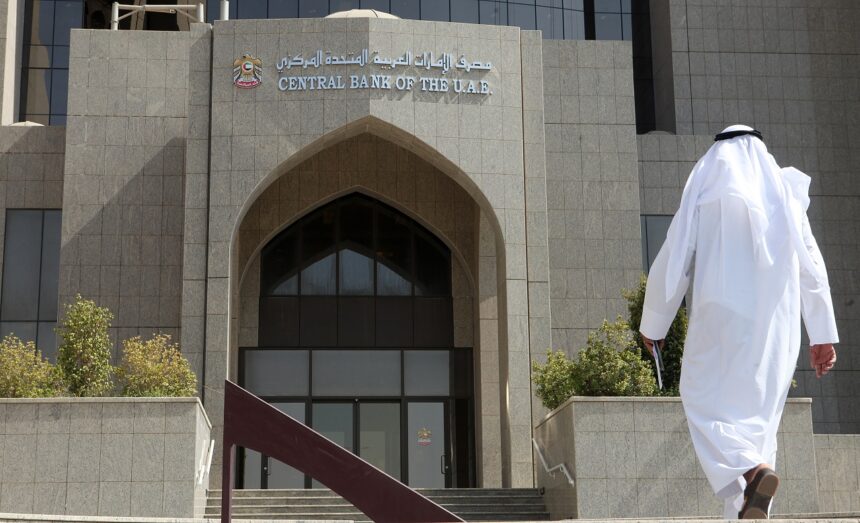The UAE Central Bank has recently imposed a substantial fine of Dh200 million (approximately $54.45 million) on an unnamed exchange house for failing to comply with anti-money laundering (AML) regulations. This penalty highlights the UAE’s ongoing commitment to combatting illegal financial activities and maintaining the integrity of its financial system.
The fine was imposed after a series of examinations conducted by the UAE Central Bank revealed significant failures in the exchange house’s framework for combating money laundering, terrorism financing, and illegal organizations. The regulatory authority stated that the exchange house had not adequately adhered to the necessary legal and compliance standards. The breach underscores the importance of stringent regulatory oversight in ensuring the financial system remains secure and free from illegal activities.
Central Bank Holding Future Positions
In addition to the hefty fine on the exchange house, the UAE Central Bank also sanctioned the branch manager responsible for overseeing operations at the violated institution. The manager was fined Dh500,000 and banned from holding any position within licensed financial institutions in the UAE. This sanction aims to reinforce the message that those responsible for breaches will face serious consequences for their role in financial misconduct.
Read More: RBA of Australia Lowers Policy Rate to 3.85% as Inflation Pressures Subside
Strengthening the UAE’s Commitment to Financial Integrity
The UAE has made significant strides in its battle against financial crime in recent years. Authorities have consistently enforced effective anti-money laundering policies and developed strategies to address terrorism financing and the proliferation of illegal activities. According to the International Monetary Fund (IMF), the implementation of robust regulations plays a crucial role in preserving the stability of the global financial system and the economic security of nations.
UAE Central Bank Strategy to Combat Financial Crimes
In line with its continued efforts to combat illicit financial activities. The UAE government announced its 2024-2027 National Strategy for Anti-Money Laundering, Countering Terrorism Financing, and Proliferation Financing. This strategy includes 11 key goals that aim to introduce new legislative and regulatory reforms. To protect society from the adverse effects of illegal financial practices. The initiative was to develop by the General Secretariat of the National Committee using methodologies. Which provided by the World Bank Group to ensure that the strategy meets international standards.
Recent Legal Reforms Strengthen the Fight
As part of its ongoing efforts, the UAE government made significant legal amendments in August of the previous year. Enhancing the country’s laws on anti-money laundering and countering terrorism financing. These reforms led to the creation of the National Committee for Anti-Money Laundering and Combating Terrorism Financing and Financing of Illegal Organizations. This new body is task with enforcing stricter measures to prevent financial crimes within the country’s borders.
Also Read: Nippon Steel US Steel Investment: $14 Billion Plan Hinges on Merger Approval
Furthermore, in 2021, the UAE government established an Executive Office for Anti-Money Laundering and Counter-Terrorism Financing. This office created in response to the 2018 anti-money laundering and terrorism financing law. The formation of the Executive Office marked a key milestone in the UAE’s efforts to combat these serious financial crimes. Enhancing its ability to monitor and enforce compliance with international regulations.
Conclusion
The UAE’s proactive approach towards regulating financial activities. Enforcing anti-money laundering regulations is proving to be an essential part of its financial sector’s integrity. By implementing tougher laws and enhancing its national strategy. The UAE is taking significant steps to ensure that it remains a trusted global financial hub. The UAE Central Bank recently imposed penalties on the exchange house and its branch manager. Sending a clear warning to other financial institutions that they will face strict consequences for violations.
Click Here for more business news.






